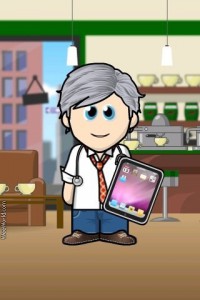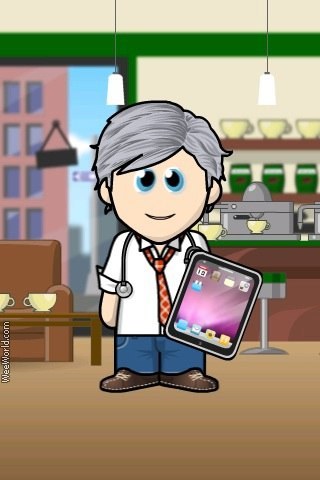Jan 25 2011
Happy Australia DayHappy Australia Day, which is a big day round here.
Congratulations to Prof Ron McCallum, announced today as senior Australian of the Year. Ron is a good friend of our good friend Robyn Fitzgerald, and thus the only Australian of the Year who has previously celebrated Australia Day at our house. He is truly a remarkable fellow. (however, I’m not sure he considers himself ‘senior’)
From http://www.australianoftheyear.org.au/
The Senior Australian of the Year 2011 is equal rights campaigner Professor Ron McCallum AO of Artarmon, NSW. Professor McCallum is the first totally blind person to have been appointed to a full professorship at an Australian university. Professor McCallum was the foundation Professor in Industrial Law at the University of Sydney, and from 2002, he served five years as Dean of Law. He has fervently pursued equal rights for working people across the globe and was the inaugural President of the Australian Labour Law Association from 2001 to 2009. He is currently Chair of Radio for the Print Handicapped of New South Wales Co-operative. The organisation operates radio 2RPH, which reads out newspapers and magazines over the air for blind and other print handicapped listeners. He is also one of two Deputy Chairs of Vision Australia, and one of 12 members of the first monitoring committee for the United Nations Convention on the Rights o Persons with Disabilities. He was appointed inaugural Rapporteur of this committee and is now the Chair. Ron has also recently been appointed to the Federal Government’s National People with Disabilities and Carers Council. Ron is a leading light in the community for people with a disability, working for equality among all Australians.
History of Australia Day
A very edited version of ‘From Celebrating Australia: A History of Australia Day essay’ by Dr Elizabeth Kwan
The tradition of having Australia Day as a national holiday on 26 January is a recent one. Although it has been a public holiday in NSW since 1818, not until 1935 did all the Australian states and territories use that name to mark that date. And it was not until 1994 that they begin to celebrate Australia Day consistently as a public holiday.
The tradition of noticing 26 January began early in the nineteenth century with Sydney almanacs referring to First Landing Day or Foundation Day. That was the day in 1788 Captain Arthur Phillip, commander of the First Fleet of eleven convict ships from Great Britain and the first governor of New South Wales, arrived at Sydney Cove. The raising of the Union Jack there symbolised British occupation of the eastern half of the continent claimed by Captain James Cook on 22 August in 1770.
Some immigrants who prospered in Sydney, especially those who had been convicts or the sons of convicts, began marking the colony’s beginnings with an anniversary dinner – ‘an emancipist festival’ to celebrate their love of the land they lived in. Governor Lachlan Macquarie, the emancipists’ friend, made the thirtieth anniversary of the day in 1818 a public holiday, thirty guns counting out the years of British civilization, a tradition Macquarie’s successors continued.3
In 1826 at the centre of the anniversary dinner, ‘Australia’ a new word for the continent, entered the list of toasts. The term was recommended in his Voyage to Terra Australis in 1814 by Matthew Flinders, the skilful circumnavigator of the continent in 1801-03, and proposed by Macquarie to a reluctant British government in 1817.
In 1837 the celebration widened with the first Sydney Regatta, the beginning of a new tradition — one which still continues today. Five kinds of races, including one for whale boats, drew crowds to the shore of Sydney Harbour. ‘It was’, the official newspaper, the Sydney Gazette reported, ‘a day entirely devoted to pleasure’. The Regatta became a central feature of Jan 26th celebrations each year – and sporting events have remained a feature of Australia Day celebrations ever since.
The five ‘sister colonies’ had mixed views of celebrating January 26th. In the centenary year of 1888 representatives of each of the five ‘sister colonies’ and New Zealand went to Sydney to celebrate with New South Wales .South Australia’s Advertiser took pains to point out that New South Wales, though ‘senior’, was not ‘the parent colony’ of all the others, which had their own ‘local memories and historic dates’. That day was not ‘in any sense’, it insisted, ‘the anniversary of a common birthday’ because ‘the idea of Australia’ was too closely linked to ‘the unpleasing circumstances of its early occupation’.
After the remarkable political acheivement of Federation in 1901, there was many years of jostling about what was to be the date of Australia Day. The Australian Natives Association (that is, those born in Australia, rather than Aboriginal) was instrumental in lobbying for 26th January to be the national day. It was not until 1935 for the first time that the name of the day and the timing of the celebration were uniform throughout the country.
With the bicentannary approcahing, in 1980 the Federal Government established the National Australian Day Committee, based in Canberra.
The new Committee, set up to help interested groups make future celebrations ‘truly national and Australia-wide’, adopted a fresh approach to Australia Day. Its forum for state representatives in 1980 agreed that 26 January 1788 ‘should be seen as a day of contact, not of conquest…the day which began the fusion of Australians’. The theme, ‘ONE LAND, ONE PEOPLE’, would best reflect ‘the spirit of Australia Day’.
The bicentennial in 1988 for it to be cemented as the “big day out” it now is across the nation. In 1994, the public holiday was moved from ‘a long weekend’ to January 26th itself.
From today’s Australian
No nation should take its good luck for granted, no society should become complacent about its harmony, no community should deny the power of the unexpected to upend settled lives. But equally no nation should forget to salute its citizens, celebrate its achievements and build an identity based on a mature understanding of its history. Have a happy Australia Day.




 RSS - Posts
RSS - Posts


Leave a Reply